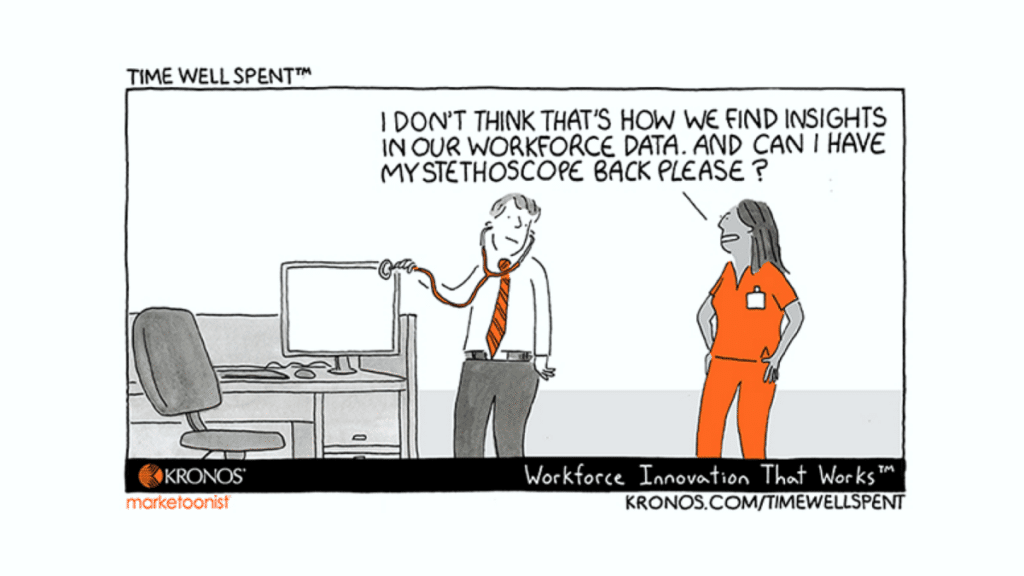Use the Right Technology Tool For the Job

The word “hack” is often used instead of tips.
For example, here’s a blog post on “100
Incredible Life Hacks that Make Life So Much Easier”.
The first one is “Tie a small piece of fabric to your luggage. Saves a lot of
time to check if it’s your bag or not.” I like to think of hacks as discovering
new ways to use common items. For example, when I travel, I always have a small
binder clip with me in case since the curtains won’t close right. Binder
clips are multi-taskers as Alton Brown would say.
But this Time Well Spent from our friends at Kronos reminds us that not everything can be or should be hacked. There are times when there’s one tool for the job and we need to use it. Or that there are several tools for the job, but some definitely aren’t it (like a stethoscope).
When purchasing and using technology, understand how to leverage its data. Whenever Mr. Bartender and I purchase technology, we ask questions about how to get the most out of it. We compare our needs as users to what the technology can provide. It’s really important for organizations not to overspend nor underbuy when it comes to their technology needs.
It’s okay to experiment but have a baseline. I find that once I learn a new piece of technology, I’m always asking myself, “I wonder if it will do this? Or maybe that?” It’s perfectly fine to be curious and give these ideas a try. Think of it in terms of the scientific method or an HR Laboratory. But in order to determine if the experiment worked, it’s helpful to have a baseline of data. Preferably, the baseline would be from the recommended way of doing things.
Look for technology “extras” like strategic partnerships and accessories that can create new opportunities. The good news is if you’re looking for ways to hack your technology, chances are that others are too. I believe this can spark innovation. And technology companies might introduce a new product, service, or create a strategic partnership with another company to deliver that “hack” you’re looking for.
Hacks – or tips – can be very helpful and make our lives a little easier. They can save us from buying something we don’t need. Or allow us to do something that we’ve wanted to do. We have to be careful though that the hack provides the proper experience or gives us the correct result. We can ensure that our hacks are good ones by asking the right questions and experimenting before making the leap to a new way of doing things.
13